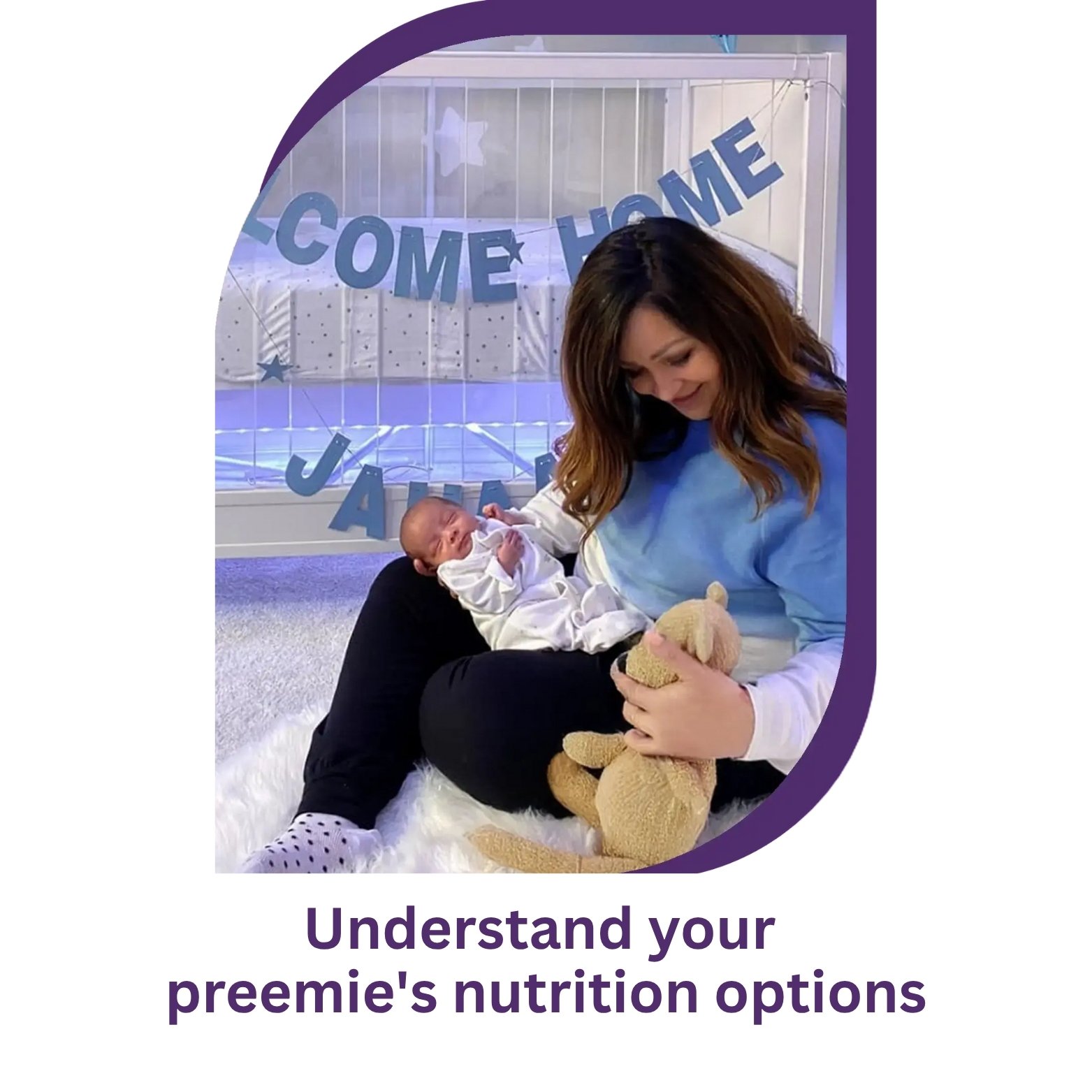What to expect in the NICU
Understanding care, nutrition, and your role in the NICU
Most parents don’t plan on meeting their baby weeks or months before their due date. According to the Centers for Disease Control and Prevention, 1 out of 10 babies is born prematurely [CDC 2022]. Annually, fewer than 2,400 babies are born with gastroschisis in the U.S.1
When you first see your baby in the neonatal intensive care unit (NICU), you will most likely see an intravenous catheter (IV) in one of their veins. These IVs provide your baby with medications, fluids, and nutrition. Your baby’s vital signs (such as their heart rate) will be monitored closely, providing caregivers with information to make critical decisions about the care of your baby.
NICU care team
Your baby will be cared for by a multi-disciplinary team which may include:
- Neonatologists
- Neonatal nurse practitioners
- Neonatal nurses
- Respiratory therapists
- Dietitians
- Pharmacists
- Lactation consultants
- Physical therapists
- Social workers

Understanding the differences between cow and human milk-based fortifiers will help you and your care team make the right choice for your baby.
Human milk fortifiers
Human milk fortifiers may be added provide additional nutrition. There are two types of human milk fortifiers. One is made from cow’s milk, and the other is made from human milk.
Prolacta’s human milk–based fortifier is concentrated breastmilk. From donor to recipient, the entire life cycle of Prolacta’s human milk–based nutritional products follows a standardized production process, including donor qualification; screening and blood testing; DNA matching; testing; pasteurization and manufacturing; and final product testing and quality review.
Studies have shown that an appropriately fortified 100% human milk diet can benefit infants weighing up to 2 pounds 12 ounces (1250 grams), compared to a diet containing cow’s milk. Be sure to speak with your baby’s neonatologist about your infant’s nutritional options during this critical time.

Feeding methods for preterm infants
Premature babies have specialized feeding requirements because they may not have the coordination of breathing, sucking, and swallowing needed to feed from the breast or bottle.
A common method for feeding premature babies is the gavage method. This involves a tube being placed through your baby’s nose or mouth to the stomach. Milk can then be directly provided through this tube. These tubes are called Nasogastric or Orogastric tubes (NG or OG tubes). Your baby may be given total parenteral nutrition (TPN) until they can consume milk feedings. This fluid is given through an IV and is different from breastmilk or formula but can contain carbohydrate, protein, fat, vitamins, and minerals. The amount of time your baby is given TPN depends on the needs of your preemie. Because there are risks with TPN, the shorter time required for TPN, the better. As milk feedings increase, the amount of TPN required decreases.
Feeding methods for term infants
Your infant could be fed by mouth or with a gavage tube. This involves a tube being placed through your baby’s nose or mouth to the stomach. Milk can then be directly provided through this tube. These tubes are called Nasogastric or Orogastric tubes (NG or OG tubes). Your baby will be given total parenteral nutrition (TPN) until they can consume milk feedings. This fluid is given through an IV and is different from breastmilk or formula but can contain carbohydrate, protein, fat, vitamins, and minerals. The amount of time your baby is given TPN depends on the needs of your infant. Because there are risks with TPN, the shorter time required for TPN, the better. As milk feedings increase, the amount of TPN required decreases.
Parents’ role in the NICU
Don’t let the NICU equipment and activity keep you from interacting with your little one. Bonding with a newborn is important for all babies. Check with the care team to decide how best to spend time with your baby. You may be able to hold your baby’s hand, stroke his or her head, sing to, or even hold your baby.
It is important that you and your baby have “skin-to-skin time.” This is also known as “kangaroo care.” Not only does it help moms produce more breastmilk, it gives both parents opportunities to bond with their baby. Skin-to-skin time is safe for you and your baby as guided by your care team.

